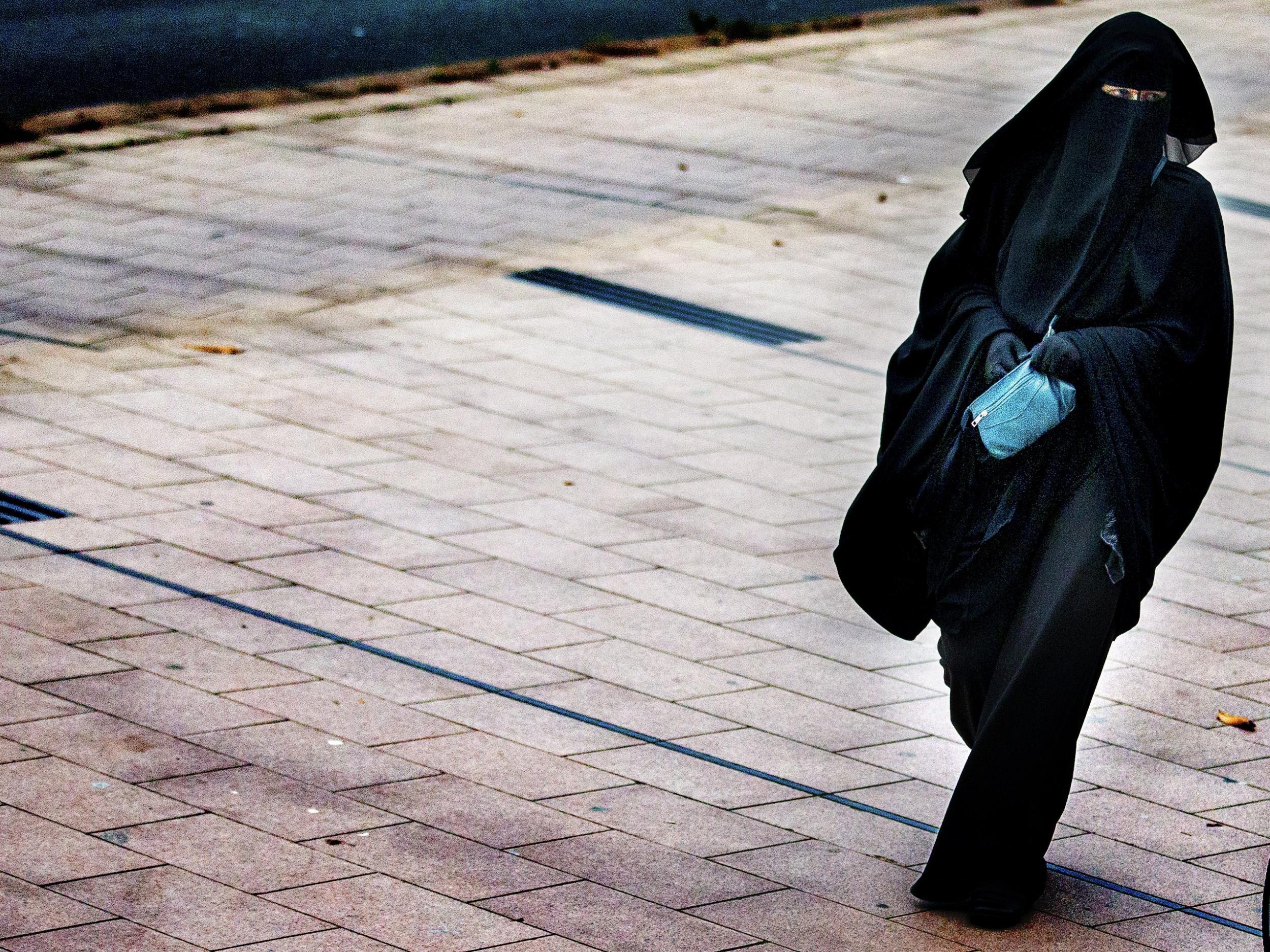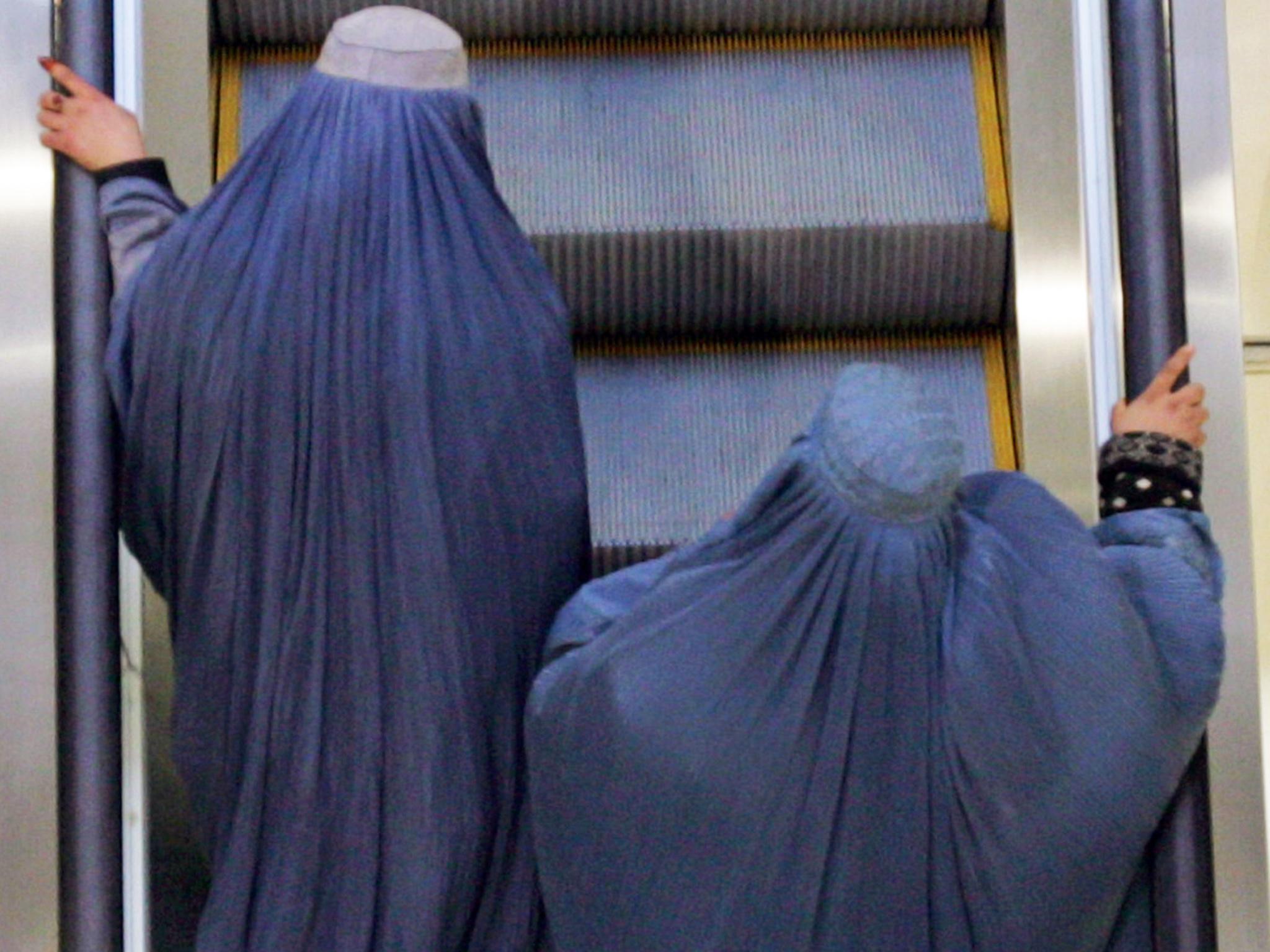Burqa bans: After Angela Merkel calls for prohibition on full veils, what is the situation in other European countries?
Several European countries have banned full-face veils since France's controversial law in 2011

Angela Merkel has called for a burqa ban in Germany while making her pitch for a fourth term as Chancellor.
“The full-face veil is not acceptable in our country,” she told members of the CDU party. “It should be banned, wherever it is legally possible.”
Thomas de Maizière, the German interior minister and one of Ms Merkel’s closest allies, previously proposed a partial burqa ban in August and called the veils “contrary to integration”.
He said the law would apply in “places where it is necessary for our society's coexistence” including government offices, schools and universities, courtrooms and demonstrations.
Here is the status of the garment in other European countries:
Netherlands
Dutch MPs have voted overwhelmingly to ban the full-face Islamic burqa in some public places, such as schools and hospitals and on public transport.
The legislation, which passed the lower house in November and now has to be approved by the Senate, bans the wearing of burqas, helmets and face masks on public transport as well as education, healthcare and government buildings.
The bill was proposed by Interior Minister Ronald Plasterk last year, as he believed clothing that covered the face hindered communication in public services and could pose a security threat. Violations could result in a fine of up to €410 (£350).
France
The first European country to ban the full-veil in public spaces with a law “banning the hiding of the face in public spaces”, with a law that took effect in April 2011. The European Court of Human Rights upheld the burqa ban in 2014, rejecting arguments that outlawing full-face veils breached religious freedom. The law has resulted in around 1,500 arrests in the past five years, and violations can result in fines of up to €150 euros (£120).
In mid-2016, several French towns sought to ban burkinis, the full-body Islamic swimsuit. The move was successfully challenged in all but one case on the island of Corsica.

Belgium
The wearing of the full veil is governed by a 1 June 2011 law. It prohibits “appearing in places accessible to the public with a face masked or hidden, in whole or in part, in such a way as to be unidentifiable”. Exceptions exist, in particular where the workplace requires the face to be hidden, or for the carnival season. Violations can result in fines and/or up to seven days in jail.
Bulgaria
In September, Bulgarian MPs approved a law that bans wearing in public clothing that partially or completely covers the face, with exceptions for health or professional reasons. Initial violations result in a fine of roughly €100 (£85), while subsequent violations are fined the equivalent of €750 (£640).
Italy
There is currently a debate over a 1975 law aimed at protecting public order that makes it illegal to cover one's face in public places and the provision applies to the veil, as well as motorcycle helmets and other masks. The anti-immigrant Northern League presented in October a draft law in the Lombardy region around Milan that would ban the burqa, niqab and burkini.
Switzerland
Switzerland's lower house narrowly approved in September a draft bill on a nationwide burqa ban, but the measure remains far from becoming law. In the southern Tessin region however, the burqa has been forbidden since 1 July and violators face a minimum fine of 100 Swiss francs (£80).
Britain
There is no law restricting the wearing of garments for religious reasons. However in March 2007 the education ministry published directives allowing directors of public establishments and denominational schools to ban the niqab veil. Judges have on occasion refused to hear veiled women because they could not verify their identity.
Norway
Education Minister Torbjorn Roe Isaksen said in October that the government was seeking regulations prohibiting the full-face veil in schools and universities. Scandinavian neighbours such as Denmark and Sweden have allowed schools, administrations and companies to decide the issue for themselves, while there is no ban in Finland.
Others
Three other countries that have not banned the burqa are among those closest to the Middle East or North Africa; Greece, Portugal and Spain.
AFP
Join our commenting forum
Join thought-provoking conversations, follow other Independent readers and see their replies
Comments